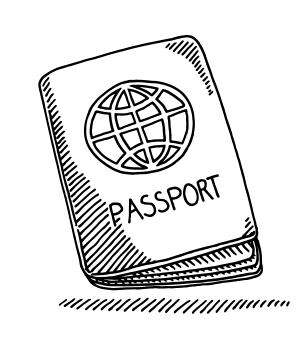Law was probably not foremost on the minds of most people watching Virgin Galactic’s rocket-powered spaceship blast across the desert skies last month. After all, Virgin hopes to offer commercial flights into space as early as 2014, and this test flight was an important milestone on this path.
But make no mistake – some lawyers were definitely watching. That’s because if the space tourism industry grows as expected in the coming years, space law could evolve into one of the most exciting legal fields.
"The evolution of technology in space creates enormous entrepreneurial and investment opportunities, and, of course, lawyers always follow entrepreneurs and investors," says Paul Stephen Dempsey, director of McGill University's Institute of Air & Space Law.
McGill’s LL.M. program in Air & Space Law is one of a few such programs focusing on this area of law. Each year, around 15-25 students come to Montreal to get a specialized LL.M. which often helps lead to jobs afterward with aviation regulators, airlines, satellite operators, insurers, and law firms, among others.
Dempsey says that although aviation law has long been the more “glamorous” pursuit at his institute, space law has recently become more alluring for incoming students.
Indeed, space law deals with more than just space travel; today's lawyers must also grapple with legal issues surrounding technological advancements in quickly-evolving fields like remote sensing and telecommunications. The University of Nebraska even clusters these topics into a Space, Cyber, and Telecommunications Law LL.M. program, which it began in 2008.
According to the university, the space and telecommunications industries “share an overlapping legal regime to an extent,” as well as common issues, “including space traffic management and security and risk management of space assets.”
Space law also covers some more “far out” legal questions, such as the legality of mining projects on the moon or asteroids, or sending people on one-way missions to colonize Mars.
"Where we are in space law today is where we were with aviation law back in the 1920s and 30s with the rise in legislation to protect passengers and the public," says Jacqueline Serrao, who directs a brand new Air & Space Law LL.M. program at the University of Mississippi School of Law.
“Usually, technology runs faster than the law,” says Serrao. “Right now, we're seeing technological advances in commercial space flight that are affecting the law itself, and the law is catching up to it."
These advancements may mean jobs. Concretely for commercial space travel, Serrao foresees future opportunities for lawyers working on private liability issues, legislative drafting, legal issues related to the development of space ports, and the unification of space law.
Most of Serrao’s own career, however, has been spent focusing on aviation law. Aviation law covers a broad range of topics, including liability, insurance, aircraft financing, environmental impacts, licensing, airport operations, accident investigation, security, and government regulation.
The new LL.M. at Mississippi – which will be offered both on-campus and online – offers mandatory courses in international and US space and aviation law, as well as electives in international telecommunications law and space security law.
The program also requires a Master’s thesis, which is an opportunity for students to follow their interests or explore a timely aspect of aviation and/or space law. Serrao says her thesis and choice of topic were key to quickly landing a job at the US Federal Aviation Administration (FAA) following her LL.M. years ago.
Career advancement is also a priority in Leiden University’s Advanced Studies LL.M. program in Air & Space Law. Offered since 2000, the program includes a mandatory, six- to eight-week internship outside of the classroom. According to Wouter Oude Alink, coordinator of the LL.M. program, the internship is one reason why many students secure job offers even before finishing the program. The other factors are the alumni networks and on-campus events that also help connect students to potential employers.
Roughly half of the program’s students begin the Leiden LL.M. program straight after their first law degree; the other half will have accrued some work experience, though not necessary always in air and space law. Like in other areas of law, the LL.M. can be a way to transition into a new specialty.
Oude Alink says that many LL.M. students come for a comparative perspective on aviation law. Even if a lawyer comes from Asia or Latin America, and plans to return there after finishing the program, examining how Europe deals with passenger rights or transnational airlines, for example, can be valuable.
This is particularly true in areas where the aviation industry is booming. Oude Alink cites the example of Africa, where air traffic is expected to grow from just under 10 million passengers in 2008 to 50 million annual passengers by 2030.
“That will be growing very fast, and there will be different aspects coming with it,” says Oude Alink. “Passenger rights is one example, but you also have to deal with slots, congestion of airports, and environmental regulations, like the emissions trading scheme.”
So, whether lawyers' careers will cover journeys from Cairo to Cape Town, or from Cape Canaveral to the moon, it's bound to be an interesting few decades in the field of air and space law. A specialized LL.M. is one way to develop an understanding of the legal issues not only surrounding the everyday operations of airplanes and satellites, but also things that were once considered the realm of science fiction.
Image: "Atlantis on Shuttle Carrier Aircraft" by NASA / Carla Thomas - Armstrong Photo Gallery: Home - info - picGreat Images in NASA: Home - info - pic. Licensed under Public Domain via Commons (cropped) - https://commons.wikimedia.org/wiki/File:Atlantis_o...










